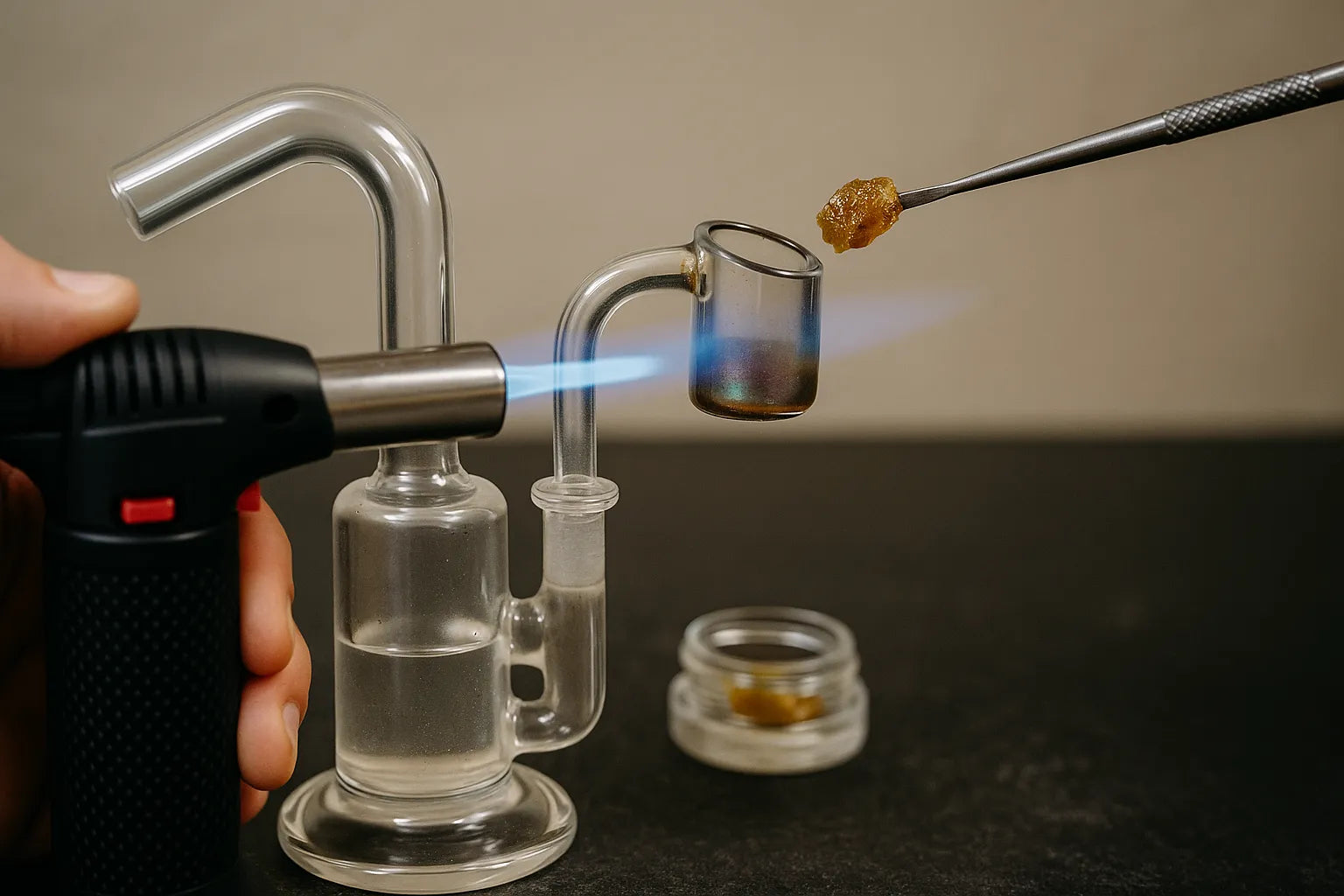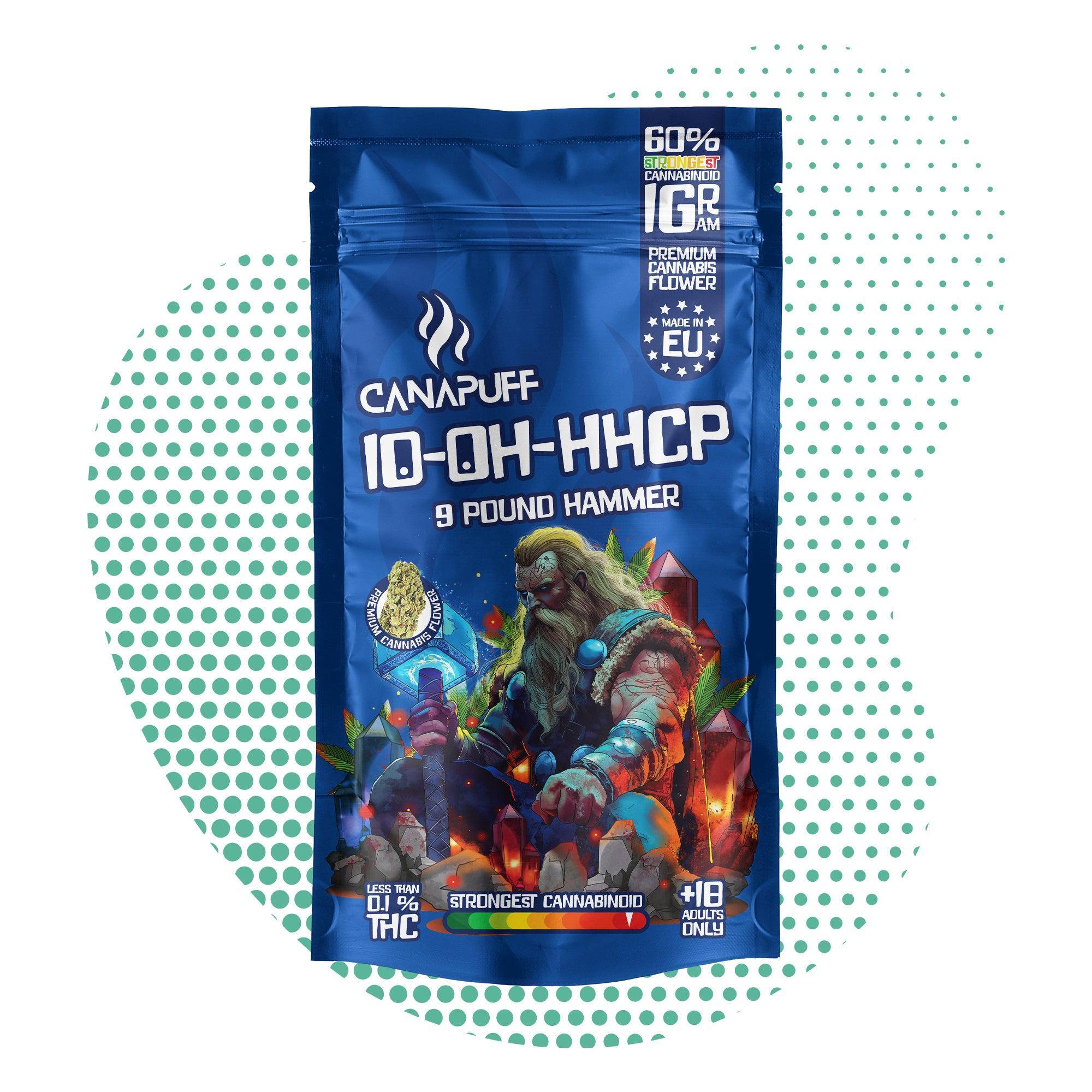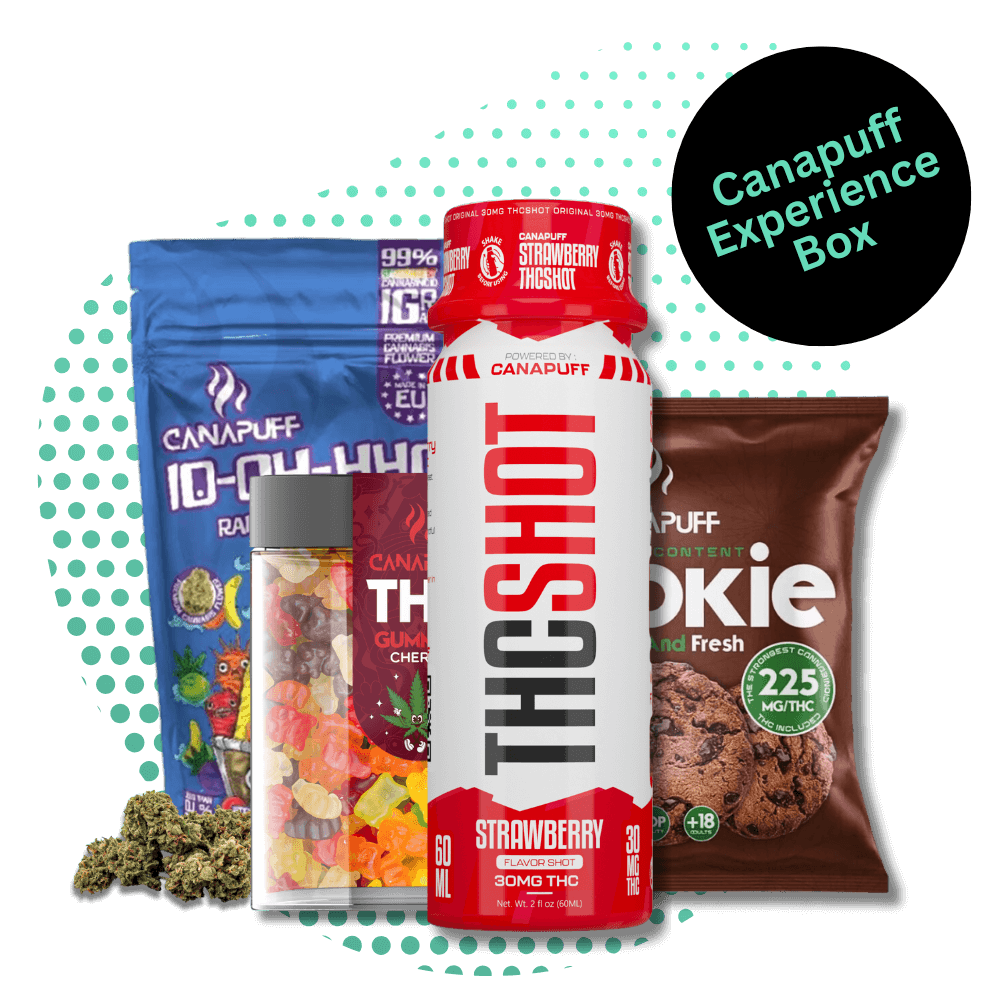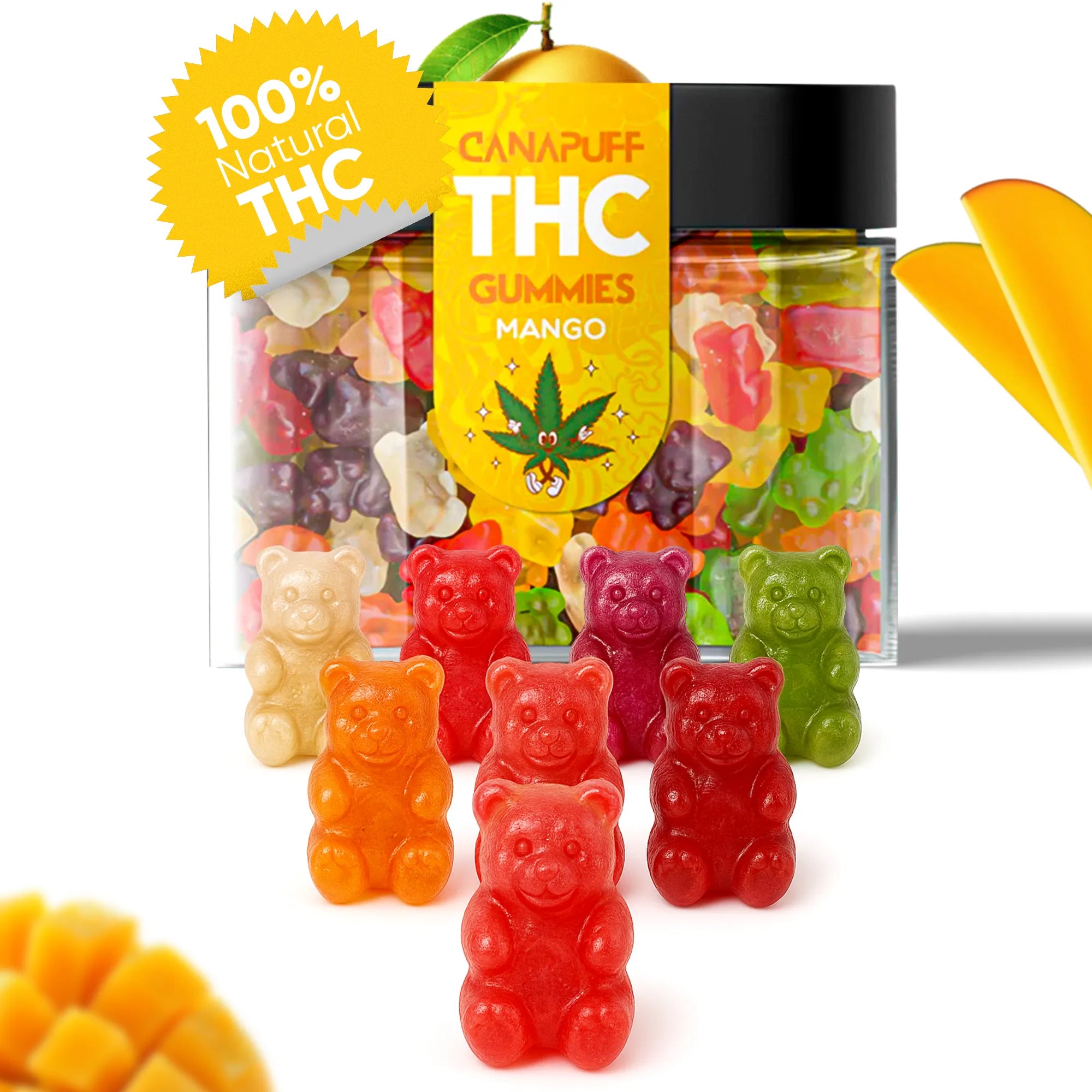Table des matières
- Understanding How CBD Helps Anxiety: The Science Behind the Calm
- What CBD is Best for Anxiety? Exploring Full-Spectrum, Broad-Spectrum, and Isolate
- CBD Reviews for Anxiety: Top Product Recommendations
- Is CBD for Anxiety Safe? Side Effects and Important Considerations
- Ensuring Quality: What to Look for in CBD Products for Anxiety
- Getting Started with CBD for Anxiety: Practical Tips
- CBD Alternatives for Anxiety: Exploring Other Natural Paths
- Will CBD Help with Anxiety? A Final Thought
Anxiety. It's a feeling many of us know all too well, a constant hum in the background or a sudden, overwhelming wave that can disrupt our daily lives. In a world that often feels like it's moving at warp speed, finding natural, effective ways to manage this pervasive emotion has become a priority for many. Enter CBD - cannabidiol - a compound derived from the cannabis plant that has been gaining significant traction as a promising natural option for anxiety management. But with so much information out there, how do you know what's truly effective and what's just hype?
As someone who has personally navigated the complexities of anxiety and explored various natural remedies, I understand the desire for clear, reliable information. My journey led me to delve deep into the world of CBD, sifting through scientific studies, product reviews, and personal anecdotes to truly understand its potential. This comprehensive guide is born from that exploration, offering you a well-researched, practical, and relatable look at recommended CBD for anxiety. We'll explore how it works, what the science says, the best types and products, crucial safety considerations, and how to confidently choose the right CBD for your needs. If you're wondering, "will CBD help with anxiety?" or "what CBD is best for anxiety?", you've come to the right place.
Understanding How CBD Helps Anxiety: The Science Behind the Calm
The idea of a plant compound calming anxious thoughts might seem almost too good to be true, but the science behind CBD's anti-anxiety effects is increasingly robust. Research indicates that CBD works through multiple fascinating mechanisms to help reduce anxiety symptoms. It's not just a blanket sedative; it interacts with our body's intricate systems in specific ways.
The Endocannabinoid System and Serotonin Receptors
At the heart of CBD's therapeutic potential lies its interaction with the body's endocannabinoid system (ECS). Think of the ECS as a master regulator, maintaining balance (homeostasis) across various bodily functions, including mood, sleep, appetite, and stress response. While CBD doesn't directly bind to the ECS receptors in the same way THC does, it influences them indirectly, helping the ECS function more efficiently.
Beyond the ECS, one of the primary ways CBD helps with anxiety is through its activation of 5-HT1A serotonin receptors . Serotonin is a neurotransmitter often associated with feelings of well-being and happiness. Studies show that CBD can actually "attenuate acute autonomic responses to stress and its delayed emotional consequences by facilitating 5-HT1A receptor-mediated neurotransmission". In simpler terms, it helps your brain better utilize its natural serotonin, leading to a calmer state. Additionally, CBD influences GABA activity, the brain's primary inhibitory neurotransmitter, which helps to quiet overactive neural pathways that contribute to anxious thoughts and feelings. It's like a gentle hand on the brakes of an overstimulated mind.
Clinical Evidence: What the Research Says
The anecdotal evidence for CBD's anxiety-reducing properties is vast, but what about rigorous scientific studies? Recent clinical trials have indeed demonstrated CBD's effectiveness for anxiety. For instance, a 2024 study published in JAMA Network Open found that CBD significantly reduced anxiety in cancer patients, with participants reporting lower anxiety levels three hours after consumption compared to a placebo. This is particularly encouraging, as cancer patients often face immense stress and anxiety.
Another comprehensive 2022 clinical trial showed that CBD treatment resulted in significant anxiety reduction within the first week, with a remarkable 100% of patients achieving clinically significant treatment response by week 3. This study utilized a full-spectrum CBD solution containing CBD, highlighting the potential of well-formulated products. These findings offer strong support for those asking, "does CBD help with anxiety?" - the answer, increasingly, is yes.
Finding Your Sweet Spot: Optimal CBD Dosage for Anxiety
One of the most common questions I hear, and one I certainly had myself, is "how much CBD should I take for anxiety?" The research points to an optimal dosage range, though individual responses can vary. Studies indicate that 300-600 mg of CBD per day appears to be the most effective range for anxiety relief.
Here's a breakdown of what research suggests:
- 300 mg is often cited as the most effective single dose for acute anxiety situations
- For generalized anxiety or ongoing management, 25-75 mg daily is recommended
- Interestingly, doses below 300 mg or above 600 mg have shown diminished effectiveness, suggesting an "inverted U-shaped dose-response curve". This means more isn't always better, and there's a sweet spot where CBD is most impactful.
It's crucial to start low and go slow, gradually increasing your dose until you find what works best for you. This personalized approach is key to unlocking CBD's full potential without overdoing it.
What CBD is Best for Anxiety? Exploring Full-Spectrum, Broad-Spectrum, and Isolate
When you start looking for recommended CBD for anxiety, you'll quickly encounter terms like "full-spectrum," "broad-spectrum," and "isolate." Understanding the differences between these types is crucial for choosing the product that's right for your needs and preferences.
Full-Spectrum CBD: The Power of the Entourage Effect
Full-spectrum CBD is generally considered the most effective for anxiety due to what's known as the "entourage effect". This theory suggests that all the compounds naturally found in the cannabis plant-not just CBD-work synergistically to enhance each other's therapeutic effects. Full-spectrum products contain:
- CBD along with other beneficial cannabinoids like CBG, CBN, and CBC.
- Terpenes, aromatic compounds that give cannabis its distinct smell and also possess their own therapeutic properties.
- Trace amounts of THC (tetrahydrocannabinol), but always less than the legal limit of 0.3%. This small amount of THC is not enough to cause a "high" but is believed to contribute to the entourage effect.
Many users, myself included, find full-spectrum products to be the most potent and effective for managing anxiety, as all the plant's compounds are working in concert.
Broad-Spectrum CBD: THC-Free Benefits
If you're looking for the benefits of the entourage effect without any THC, broad-spectrum CBD is an excellent choice. Broad-spectrum products contain CBD and other cannabinoids and terpenes, but the THC has been carefully removed. This makes it suitable for individuals who:
- Are sensitive to THC.
- Undergo regular drug testing.
- Simply prefer to avoid THC entirely while still benefiting from the synergistic action of other cannabis compounds.
- It's a great middle-ground option that offers a wider range of compounds than isolate, but without the concern of THC.
CBD Isolate: Pure and Simple
CBD isolate is exactly what it sounds like: pure, isolated CBD. All other plant compounds, including cannabinoids, terpenes, and THC, are removed during the extraction process. This results in a product that is typically 99% pure CBD.
CBD isolate may be appropriate for:
Beginners who want to try CBD without any other compounds.
Individuals who are highly sensitive to other cannabinoids.
Those who require a completely THC-free product for personal or professional reasons.
While isolate doesn't offer the entourage effect, it can still be effective for anxiety for some individuals, providing a straightforward way to experience CBD's benefits.
Here's a quick comparison of the different types of CBD:
|
Feature |
Full-Spectrum CBD |
Broad-Spectrum CBD |
CBD Isolate |
|
Cannabinoids |
CBD + other cannabinoids (CBG, CBN, CBC) |
CBD + other cannabinoids (CBG, CBN, CBC) |
Pure CBD only |
|
Terpenes |
Yes |
Yes |
No |
|
THC Content |
Trace amounts (under 0.3%) |
Non-detectable (0%) |
Non-detectable (0%) |
|
Entourage Effect |
Strongest |
Moderate to Strong |
None |
|
Best For |
Max therapeutic benefit, general anxiety |
THC-sensitive individuals, drug testing |
Beginners, highly THC-sensitive |
CBD Reviews for Anxiety: Top Product Recommendations
Navigating the vast market of CBD products can be overwhelming. Based on extensive testing, customer feedback, and my own experience, here are some of the top-rated recommended CBD for anxiety products that consistently stand out for their quality, effectiveness, and transparency.
Top-Rated CBD Oils for Anxiety: My Personal Picks
When it comes to immediate relief and precise dosing, CBD oils are often the preferred choice. Here are a few brands that have earned high marks:
Lazarus Naturals Full Spectrum CBD Tincture: This brand consistently receives praise for its excellent value and high-quality, organic ingredients. They offer a wide range of potency options, from 1,500-6,000 mg per bottle, making it easy to find a strength that suits your needs. Their commitment to third-party testing with readily available certificates of analysis (COAs) instills confidence. From a personal standpoint, Lazarus Naturals has been a go-to for its reliability and the noticeable calm it provides during particularly stressful periods.
CBDistillery Ahhh Distilled Full Spectrum CBD Oil: This product is specifically formulated for relaxation and comes in a convenient 500 mg bottle (17 mg per serving). It's a great option for those looking for a reliable, mid-range potency.
NuLeaf Naturals Full Spectrum CBD Oil: NuLeaf Naturals stands out for its USDA-certified organic hemp and CO2 extraction method, ensuring a clean and pure product. They offer various potency options from 300-6,000 mg and have consistently positive customer reviews. Their commitment to quality is evident, and many users report significant anxiety relief.
CBD Gummies vs. Oil for Anxiety: Which is Right for You?
The choice between CBD gummies and oil often comes down to your lifestyle and how quickly you need relief. Both have their merits, and many people use a combination of both for different situations.
CBD Oils for Acute Anxiety Episodes:
Faster Absorption: CBD oils are absorbed more quickly, typically within 15-30 minutes, when taken sublingually (under the tongue). This makes them ideal for acute anxiety episodes where you need rapid relief.
Precise Dosing: The dropper allows for very precise dosing adjustments, which is crucial when you're trying to find your optimal dose.
Immediate Relief: When a sudden wave of anxiety hits, the quicker onset of an oil can be incredibly beneficial.
CBD Gummies for Ongoing Anxiety Management:
Longer-Lasting Effects: While gummies have a slower onset (45-90 minutes), their effects tend to last longer, making them excellent for consistent, ongoing anxiety management throughout the day [21].
Convenient and Pre-Measured: Gummies offer a discreet and convenient way to take CBD, with each gummy providing a pre-measured dose. This eliminates the need for measuring and makes them perfect for on-the-go use.
Better Taste and Portability: For those who dislike the earthy taste of CBD oil, gummies are a delicious alternative. Their portability also makes them easy to carry in a bag or pocket.
My personal routine often involves an oil for those moments when anxiety spikes unexpectedly, and gummies for a consistent, low-level calm throughout the day. It really depends on your individual needs and preferences.
Is CBD for Anxiety Safe? Side Effects and Important Considerations
While CBD is generally well-tolerated and offers a promising natural alternative, it's crucial to understand its safety profile, potential side effects, and important drug interactions. This section addresses common concerns about is CBD for anxiety truly safe.
Who Should Avoid CBD?
While CBD is safe for most adults, there are certain groups for whom it is not recommended or should be used with extreme caution:
Pregnant or breastfeeding women: There is insufficient research on the effects of CBD during pregnancy and lactation, so it's best to avoid it.
People with liver disease: CBD is metabolized by the liver, and individuals with liver conditions may require lower doses to prevent accumulation and potential adverse effects.
Those taking certain medications without medical supervision: This is perhaps the most critical consideration, which we'll delve into next.
Always consult with a healthcare provider before starting CBD, especially if you have pre-existing health conditions.
Navigating Drug Interactions with CBD
One of the most important aspects of CBD safety is its potential to interact with certain medications. CBD is metabolized by liver enzymes, particularly the cytochrome P450 (CYP450) system, specifically CYP2D6 [11]. This means it can affect how your body processes other drugs that are also metabolized by these enzymes.
Key medications that may interact with CBD include:
- Antidepressants (SSRIs, tricyclics): CBD can potentially increase the levels of certain antidepressants in the blood, leading to enhanced side effects.
- Benzodiazepines: CBD may increase the blood levels of benzodiazepines, potentially leading to increased sedation.
- Blood thinners: CBD can inhibit the activity of enzymes that metabolize blood thinners, potentially increasing their effects and the risk of bleeding.
- Some opioids: Similar to other medications, CBD can affect the metabolism of certain opioids.
My personal experience has reinforced the importance of this. When I first considered CBD, I was already on a prescription medication. I made sure to discuss it thoroughly with my doctor, who advised me on potential interactions and helped me adjust my dosage accordingly. This step is non-negotiable for your safety. Always consult with a healthcare provider before combining CBD with any prescription medications. They can help you understand potential risks and adjust dosages if necessary.
Common Side Effects
While generally well-tolerated, some individuals may experience mild side effects from CBD:
- Fatigue or drowsiness
- Changes in appetite
- Diarrhea
- Dry mouth
- Dizziness
These side effects are typically mild and often resolve as your body adjusts to CBD or if the dosage is reduced. If you experience persistent or bothersome side effects, discontinue use and consult your healthcare provider.
Ensuring Quality: What to Look for in CBD Products for Anxiety
The CBD market is largely unregulated, which means product quality can vary wildly. To ensure you're getting a safe, effective, and accurately labeled product, especially when seeking the best CBD for anxiety, it's vital to know what to look for.
The Importance of Third-Party Testing and COAs
This is perhaps the single most important factor when purchasing CBD. Reputable brands will always provide Certificates of Analysis (COAs) from an independent, third-party laboratory. These COAs verify several critical aspects of the product:
- Cannabinoid Content and Potency: This confirms that the product contains the amount of CBD (and other cannabinoids like THC) that it claims on the label. This is crucial for accurate dosing.
- Absence of Contaminants: A good COA will test for and confirm the absence of harmful substances such as pesticides, heavy metals, residual solvents (from the extraction process), and microbial contaminants (like mold or bacteria).
- Microbial Safety: Ensures the product is free from harmful bacteria and fungi.
Always check the COA by scanning a QR code on the product or looking it up on the company's website using the batch number. If a company doesn't provide COAs, it's a major red flag.
Identifying Reputable CBD Brands
Beyond third-party testing, look for companies that demonstrate overall transparency and a commitment to quality. Reputable brands often have [28, 18]:
Transparent Manufacturing Processes: They should be open about where their hemp is sourced, their extraction methods, and their manufacturing facilities.
Organic Hemp Cultivation: Hemp grown organically is less likely to contain pesticides and other harmful chemicals.
Good Customer Service and Reviews: A company with responsive customer service and consistently positive reviews from real users is a good indicator of reliability.
Clear Dosing Instructions: Products should come with clear, easy-to-understand dosing guidelines.
Brands like Lazarus Naturals and NuLeaf Naturals, mentioned earlier, are excellent examples of companies that meet these criteria.
Decoding CBD Product Labels
A quality product label should clearly state:
Exact CBD Content per Serving: This helps you accurately dose.
Type of CBD: Clearly indicate whether it's full-spectrum, broad-spectrum, or isolate.
Complete Ingredient List: All ingredients, active and inactive, should be listed.
Batch Numbers for Traceability: This allows you to cross-reference the product with its specific COA.
Being an informed consumer is your best defense against subpar products. By following these guidelines, you can significantly increase your chances of finding high-quality, effective CBD for anxiety that you can trust.
Getting Started with CBD for Anxiety: Practical Tips
So you've done your research, understood the science, and identified quality products. Now, how do you actually start incorporating CBD and anxiety management into your routine? Here are some practical tips based on common recommendations and personal experience.
Recommendations for Beginners
If you're new to CBD, the journey can feel a bit daunting. My advice is to keep it simple and methodical:
Start Low and Go Slow: This is the golden rule. Begin with a very low dose, such as 10-25 mg per day [10]. Give your body a few days to adjust before considering a slight increase. This allows you to gauge your individual response without overdoing it.
Consider Broad-Spectrum or Full-Spectrum First: While isolate is pure, many find that broad-spectrum or full-spectrum products offer enhanced effectiveness due to the entourage effect. Starting with one of these can give you a better sense of CBD's full potential.
Choose Reputable Brands: Stick with brands like Lazarus Naturals or CBDistillery that are known for their transparency and third-party testing.
Consult a Healthcare Provider: This is especially important if you are taking other medications or have underlying health conditions. They can provide personalized guidance and monitor for any potential interactions.
Using CBD for Acute Anxiety
For those moments when anxiety spikes unexpectedly, a quick-acting solution is key:
Use CBD Oil Tinctures: As discussed, oils offer faster absorption (15-30 minutes) when taken sublingually, making them ideal for acute situations.
Consider Doses in the 300 mg Range: For single-use, acute anxiety situations, studies suggest that doses around 300 mg can be particularly effective. However, remember to start lower and only increase if needed and tolerated.
Keep Products Easily Accessible: Have your CBD oil readily available so you can take it as soon as you feel anxiety building.
There have been times when a sudden deadline or an unexpected social event would trigger intense anxiety for me. Having a reliable CBD oil on hand, and knowing the right dose for those moments, has been a game-changer in helping me regain composure quickly.
Integrating CBD for Daily Anxiety Management
For consistent, ongoing anxiety management, a routine approach often yields the best results:
CBD Gummies or Capsules for Consistency: These forms offer convenient, pre-measured doses and longer-lasting effects, making them suitable for daily use.
Aim for 25-75 mg Daily, Divided into Multiple Doses: This range is often recommended for generalized anxiety. You might take a smaller dose in the morning and another in the evening, or as needed throughout the day.
Establish a Routine: Consistency is key with CBD. Taking it at the same time each day can help maintain steady levels in your system, potentially leading to more optimal benefits over time.
Think of it as a supplement to your overall wellness routine, much like taking a daily vitamin. It's about building a foundation of calm.
CBD Alternatives for Anxiety: Exploring Other Natural Paths
While our focus here is on recommended CBD for anxiety, it's worth noting that CBD is part of a broader landscape of natural approaches to managing anxiety. For some, CBD might be a perfect fit, while others might find benefit in exploring complementary or alternative methods.
Some popular natural alternatives and complementary therapies include:
- Herbal Remedies: Certain herbs like chamomile, valerian root, passionflower, and kava have long been used for their calming properties.
- Mindfulness and Meditation: Practices that focus on present moment awareness can significantly reduce stress and anxiety.
- Exercise: Regular physical activity is a powerful anxiety reducer, releasing endorphins and improving mood.
- Dietary Changes: Reducing caffeine, sugar, and processed foods, and increasing intake of whole, nutrient-dense foods, can positively impact mood.
- Therapy and Counseling: Cognitive Behavioral Therapy (CBT) and other forms of talk therapy are highly effective for addressing the root causes of anxiety.
It's important to remember that anxiety management is often a multi-faceted approach. CBD can be a valuable tool, but it's rarely the only tool. Exploring a holistic strategy that includes lifestyle adjustments and other natural remedies can lead to more comprehensive and sustainable relief.
Will CBD Help with Anxiety? A Final Thought
The journey to managing anxiety is deeply personal, and what works for one person may not work for another. However, the growing body of scientific evidence, coupled with countless personal anecdotes, strongly suggests that CBD offers a promising, natural avenue for anxiety relief. For many, including myself, it has provided a gentle yet effective way to quiet the mind, reduce the physical symptoms of stress, and foster a greater sense of calm.
It's not a magic bullet, but rather a powerful tool that, when used thoughtfully and responsibly, can significantly enhance your well-being. The key lies in understanding how it works, choosing high-quality products, and being mindful of your individual response.













Laisser un commentaire
Ce site est protégé par hCaptcha, et la Politique de confidentialité et les Conditions de service de hCaptcha s’appliquent.